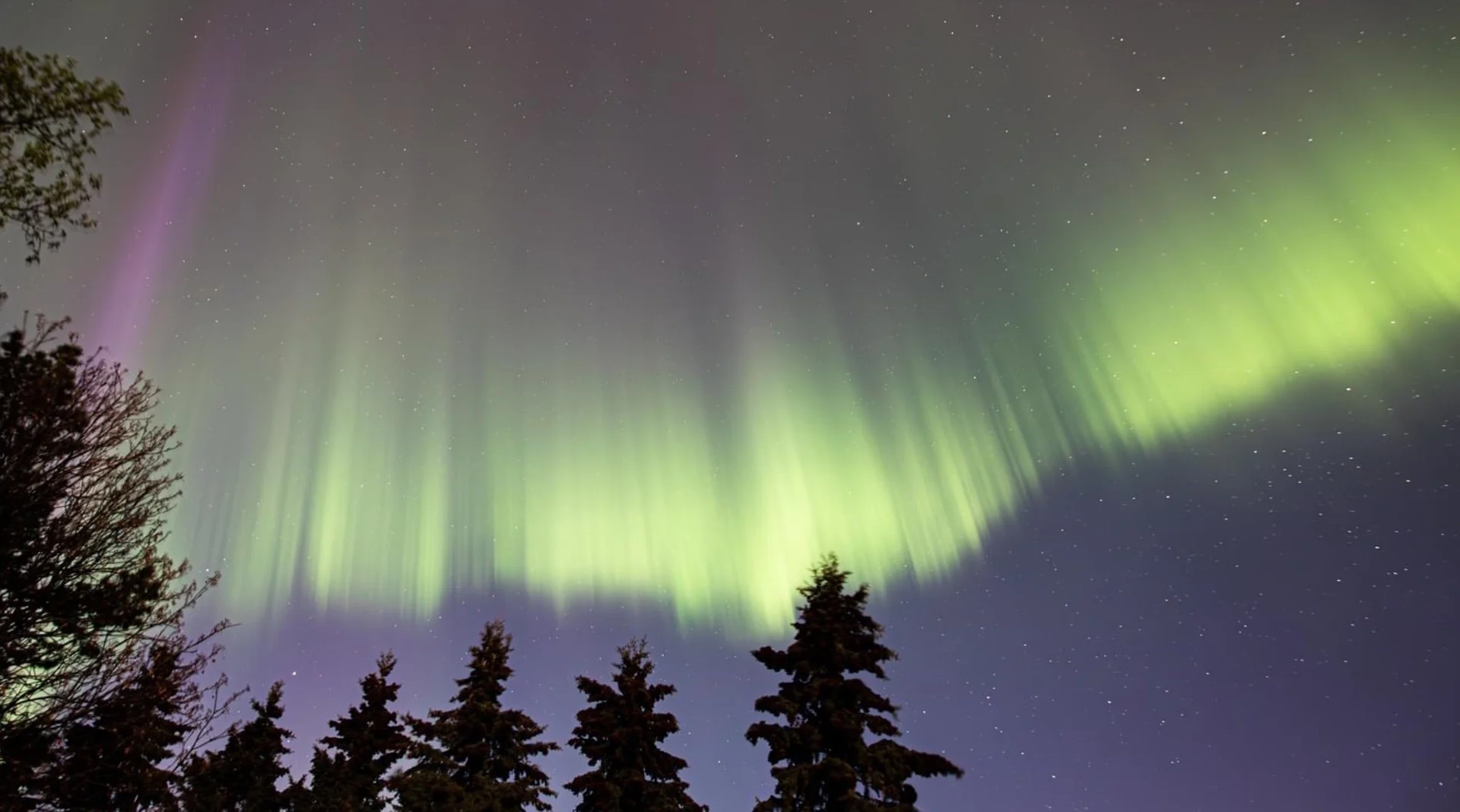
Grab your camera: Sunday night auroras are possible over Canada
A geomagnetic storm washing over Earth this weekend could generate widespread auroras across Canada on Sunday night
If you’ve got clear skies and a warm coat, you might be able to see the aurora borealis shine bright across much of Canada on Sunday night.
A geomagnetic storm washing against Earth’s magnetic field triggered widespread auroras across the northern hemisphere this weekend, affording folks as far south as Ukraine a rare sighting of the northern lights.
Sunday night’s aurora potential across North America caught the interest of both space weather enthusiasts and photographers for the potential for vivid lights over Canada and portions of the northern United States.
DON’T MISS: Are you ready for the April 8, 2024, Total Solar Eclipse? Here's how to prepare
NOAA’s Space Weather Prediction Center announced Sunday that a geomagnetic storm washing over Earth’s magnetic field reached G3 (strong) intensity on Sunday. The G-scale ranges from G1 (minor) on the low end to G5 (extreme) on the high end.
The geomagnetic storm’s effects grew so intense early Sunday that it brought a vivid aurora much farther south than usual, filling the skies over Europe as far south as Ukraine with a memorable show. Multiple folks in the region posted the magnificent sight to social media.
Forecasters expect the solar storm to wane to G2 (moderate) intensity by the time the sun sets over North America, which is still plenty strong enough to generate colourful auroras over much of Canada.
The intensity of this weekend’s solar storm is expected to measure a Kp 5 on the K-index, another scale scientists use to measure the disruption to Earth’s magnetic field. The K-index ranges from 0 to 9, with higher numbers correlating to conditions that may allow auroras to dip farther south in latitude.

MUST SEE: Baffin Island rocks point to rare form of helium leaking from Earth's core
If it reaches its full potential, a Kp 5 event could make auroras visible south of the border, affording a fantastic viewing opportunity for almost all of the Prairies, as well as most of Interior British Columbia, northern sections of Ontario and Quebec, and portions of Newfoundland and Labrador.
As always, one of the biggest factors in viewing any nighttime spectacle is cloud cover.
Unfortunately, forecasters expect widespread cloud cover to blanket much of Canada on Sunday evening as storm systems push into the West Coast and the eastern Prairies.

Scattered clouds across Alberta may provide hit-or-miss viewing opportunities throughout southern and central portions of the province. Breaks in the clouds are also possible in southwestern Saskatchewan.
Much of Ontario will contend with clouds through Sunday evening as a clipper system pushes into the province. Pockets of clear skies are possible in far northern Ontario, as well as throughout central and northern Quebec.
Clouds aren’t the only factor that can inhibit a view of the northern lights. The best way to maximize your chance of seeing the aurora on a favourable night is to get away from cities and suburbs, venturing into the darkest area you can safely find. Light pollution dims the nighttime sky, making it hard or nearly impossible to see faint auroras on the horizon.
Let us know if you spot the aurora on Sunday night! Tag us @weathernetwork on X (Twitter) and Instagram, use #ShareYourWeather, or submit your best weather images to our photo gallery to reveal your remarkable skies to the world.
Header image courtesy of Shannon Prentice near Red Deer, Alberta, in May 2023.











